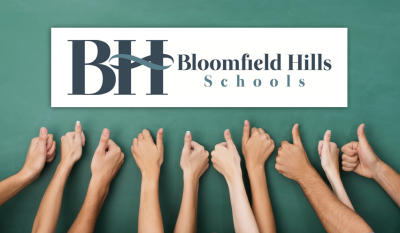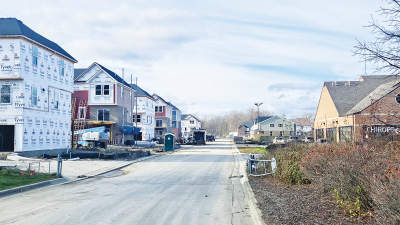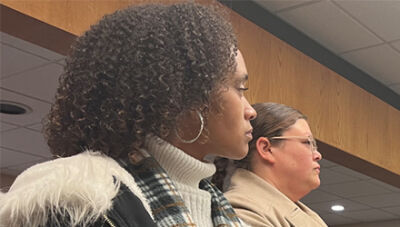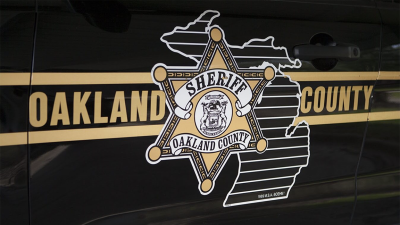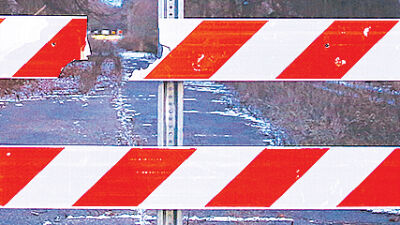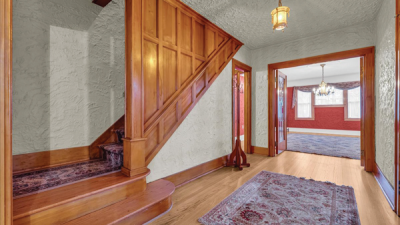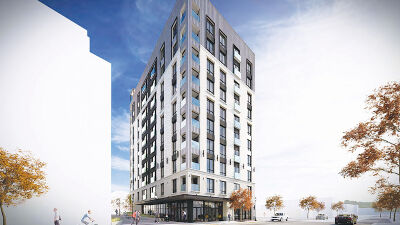BLOOMFIELD HILLS — On Aug. 6, Bloomfield Hills voters will see a Bloomfield Hills Schools operating millage renewal proposal on their ballot.
“It is not a new tax for property owners for residences, but it’s, rather, just a continuation of a tax that we have levied for purposes of operating the school district since 1994, and it is all tied to the full value of our state aid foundation allowance,” said Kandice Moynihan, the district’s assistant superintendent of finance and operations.
The proposal includes a 20-year renewal of an 18-mill non-homestead operating millage and the renewal of the hold harmless millage. A yes vote would authorize an operating millage of 22 mills, giving the district the authority to levy 18 mills for general operating purposes on non-homestead property while protecting against the impact of future Headlee rollbacks of up to 4 mills, officials said.
The non-homestead operating millage applies to non-homestead property, including principally industrial and commercial real property and residential rental property.
The so-called “hold harmless” millage rate, however, applies to principal residences in the district and relies on multiple factors that change annually, the district said. The current rate is 5.1338 mills. Each year, the district levies the equivalent of $3,835 per pupil, which is the amount necessary to receive the full per-pupil state aid foundation allowance.
“Annually, the tax rate changes based on the number of students enrolled within the district, state aid funding and property tax value,” Moynihan said.
For the ballot proposal residents will be voting on next month, principal residences would be restricted to a tax of no more than 9.65 mills. Officials said the proposal also protects against future Headlee rollbacks of up to 4 mills.
A mill is $1 for $1,000 of a home’s taxable value.
“When our property tax values increase at a rate higher than inflation, there is a rollback factor that is applied against the tax rate that we can levy on our properties and our homeowners. So having that higher maximum rate, also protects us from a rollback and losing funding,” Moynihan said.
In an email, Bloomfield Hills Schools Board of Education President Meagan Hill said the renewals are a continuation of the current taxes levied for the school district to receive its full state aid foundation allowance.
“Without these funds, the district will lose $34.3 million in operating revenue, which funds essential day-to-day expenses such as salaries, utilities and expenses associated with our educational programs,” she said in an emailed statement. She said the proposal is “critical to the education of our students.”
In order to receive the full value of their foundation allowance, the district is required by law to take this operating millage to its constituents to approve. If it is not approved, they will not receive their full state aid.
If approved, the operating millage would be inclusive to the years 2026-2045.
“By going out for a period of 20 years with an appropriate buffer to protect us against that Headlee rollback, it really is just setting us up for a longer stretch of fiscal stability and not having to take this to the polls every five or 10 years,” Moynihan said.
If the tax is approved and levied, it would provide the district with an estimated $18.3 million in the 2026 calendar year. The funds will be used for general operating purposes.
“Because these are operating millages, the funds generate the revenue that directly supports the district’s general fund operating budget,” Moynihan said. “So, that is the budget and the source of funding that funds all of our essential, day-to-day expenses, which would include the salaries, the benefits, utilities, any and all costs associated with the district’s educational and co-curricular programs for all seven of our Bloomfield Hills schools.”
While the district was not required to put the mills on the same ballot, both renewals must pass in order to receive the full per pupil state aid foundation allowance annually. For more details, visit oakgov.com.
Bloomfield Hills Schools Operating Millage Renewal Proposal
This proposal would renew the authority of the School District, which expires with the 2025 tax levy, to levy up to 18.00 mills for general school district operating purposes on taxable property in the School District to the extent that such property is not exempt from such levy, restrict the levy on principal residences (owner-occupied homes) to no more than 9.65 mills and protect against the impact of future Headlee rollbacks of up to 4.0 mills, This authorization would allow the School District to continue to levy the statutory limit of 18.00 mills on non-homestead property (principally industrial and commercial real property and residential rental property) and to continue to levy on principal residence property (owner occupied homes) only that portion of the mills necessary to allow the School District to receive the full revenue per pupil foundation allowance permitted by the State. The School District estimates that it will levy not more than 5.1338 mills on personal residences (owner occupied homes) in 2024.
Shall the limitation on the amount of taxes which may be imposed on taxable property in the Bloomfield Hills Schools, County of Oakland, Michigan, be increased in the amount of 22 mills, with 18 mills being the maximum allowable levy ($18.00 per $1,000 of taxable value), to the extent such property is not statutorily exempt, and of which not more than 9.65 mills may be imposed on principal residences, for twenty (20) years, the years 2026 to 2045, inclusive, to provide funds for operating expenses of the School District? This operating millage, if approved and levied, would provide estimated revenues to the School District of $18,300,000 during the 2026 calendar year, to be used for general operating purposes.
 Publication select ▼
Publication select ▼